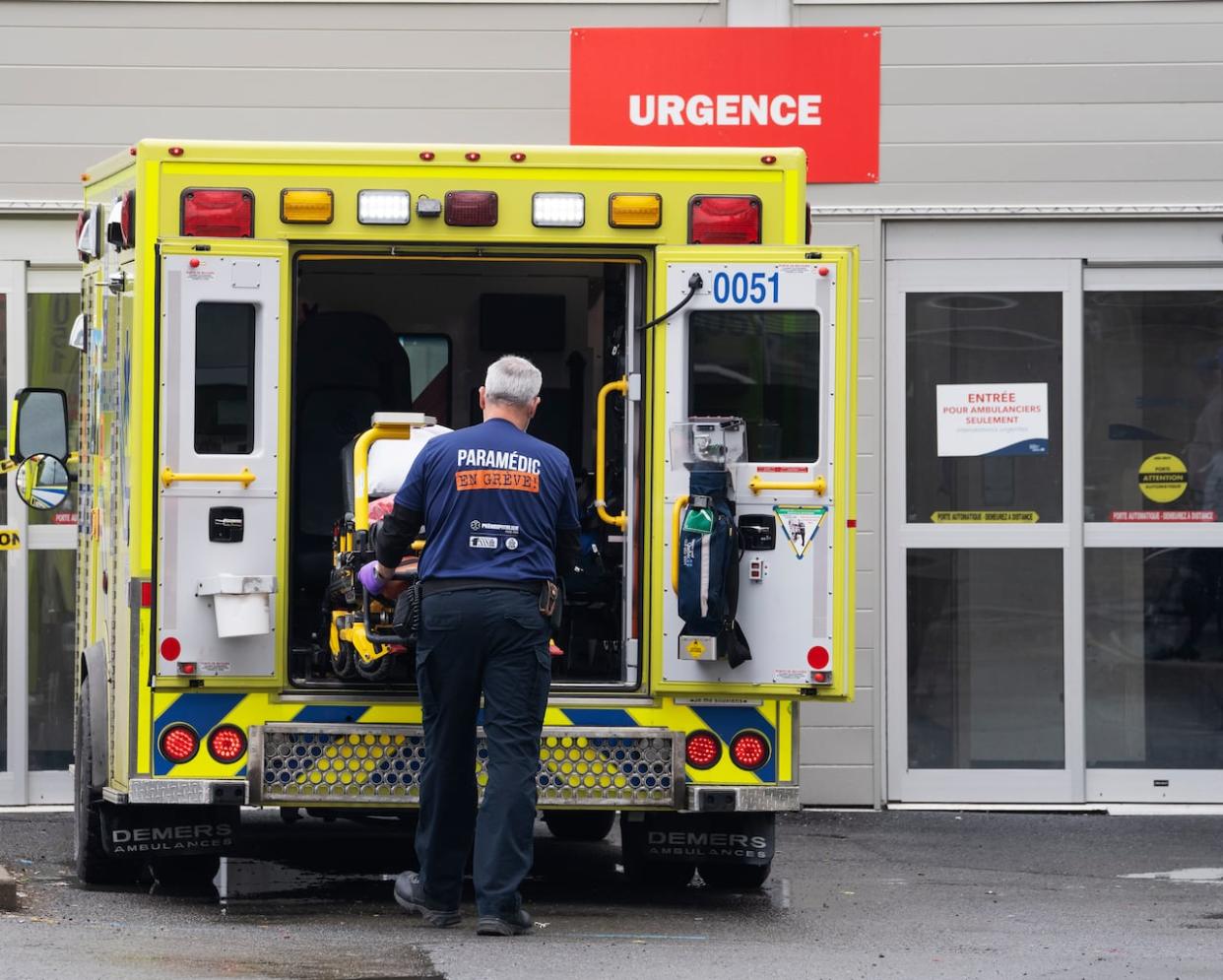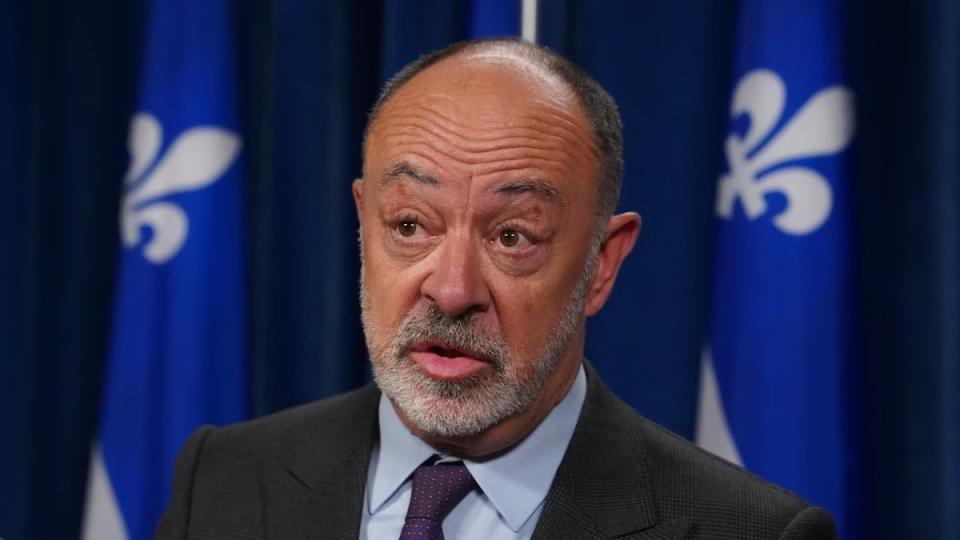Why are Quebec's ERs so bad this year? A bunch of reasons, Quebec health minister says

The number of sick and injured people in Quebec's emergency rooms is the highest it has been in five years and doctors and nurses are struggling to provide care.
The crisis is centred in the greater Montreal area, where most emergency rooms were above 100 per cent capacity on Wednesday afternoon and some at 200 per cent.
In a province where emergency rooms are often — if not always — clogged around the holidays and primary care is difficult for a large slice of the population who lack access to a family doctor, "crowded ERs" has become a perennial headline.
Striking a sombre tone, armed with the latest statistics about respiratory virus infections in Quebec and pointing to charts showing ER occupancy rates, Health Minister Christian Dubé told reporters assembled at a news conference in Montreal on Wednesday that, this time, it is worse.
The culprit is the usual one, Dubé said: a cocktail of respiratory viruses including COVID, respiratory syncytial virus (RSV) and influenza, AKA the flu, arrived just as Quebecers were spending time in groups for the holidays and nurses and doctors were taking some time off.
In a normal year, Dubé said there are approximately 3.6 million visits to Quebec ERs: about 10,000 per day. But recently, there have been approximately 1,000 more visits each day — a 10 per cent increase.
A large part of that increase is due to respiratory viruses. Last year, approximately 1,000 people went to the ER each day with the flu, COVID or RSV. This year, the daily number is closer to 1,900.
Meanwhile, the average age of those who showed up at the ER increased. Quebec has an aging population. In 2021, the government tallied 1.75 million people aged 65 and over in the province: 20 per cent of the population. Older people tend to require more urgent care at the ER, Dubé said.
It is also not entirely clear if Dubé's earlier plea that Quebecers avoid the ER unless they had an urgent issue was heeded: more than 50 per cent of visits to the ER in the past two weeks were classified as P4 or P5 — non-urgent classifications.

In December, Quebec’s Health Minister Christian Dubé urged people without urgent health issues to stay away from emergency rooms. (Sylvain Roy Roussel/Radio-Canada)
"They're all problems we deal with at the emergency room that we should do elsewhere with our front line, with our medical clinics, the services we put in place," Dubé said.
Dr. Gilbert Boucher, the president of the association of specialists and emergency care physicians, who attended the news conference with Dubé, took an apologetic tone. Emergency solutions proposed to fix the ER crowding problems have so far failed, he said.
"We know we have to do better. It's really hard right now," he said. "As of Monday we will have all our teams [back from vacation] and we need to do better because we know right now we are struggling to serve the population in an adequate way."
Dubé did not present any immediate solution to the crisis in the ERs. He warned the situation could even get worse in the coming weeks because the province's health data suggested that influenza infections were approaching their peak.
He said Quebecers should get their flu shots to protect themselves and he provided the same list of possible alternatives to the ER that he has often cited: 811 health hotline, consulting pharmacists and home care.
Dr. Luc Boileau, Quebec's public health director, said Quebecers should continue to practise good habits they learned during the COVID-19 pandemic such as staying home when feeling unwell.
They should also get vaccinated, he said, although he noted that he has not recommended the government provide the RSV vaccine for free. The flu shot, by comparison, is free and available by appointment at a number of pharmacies and other centres.


